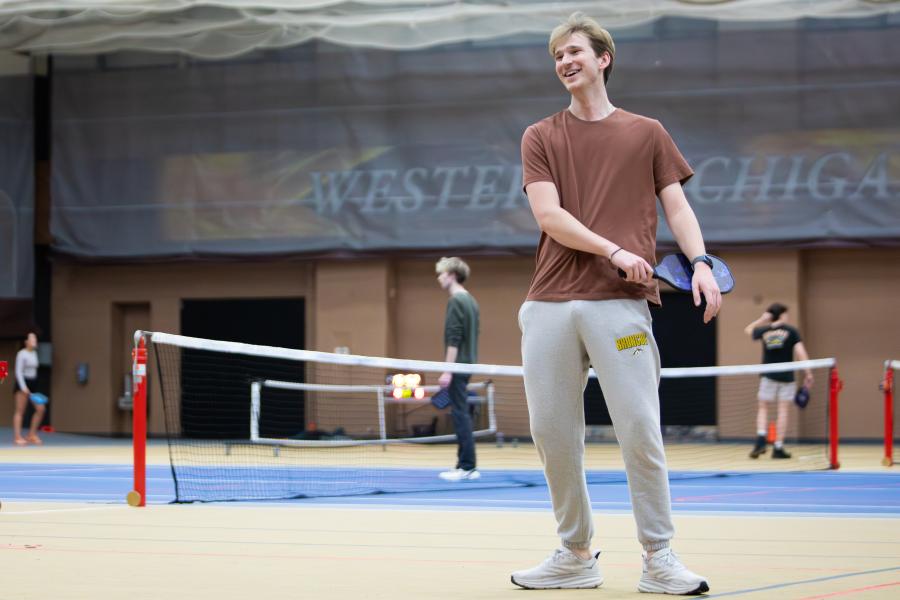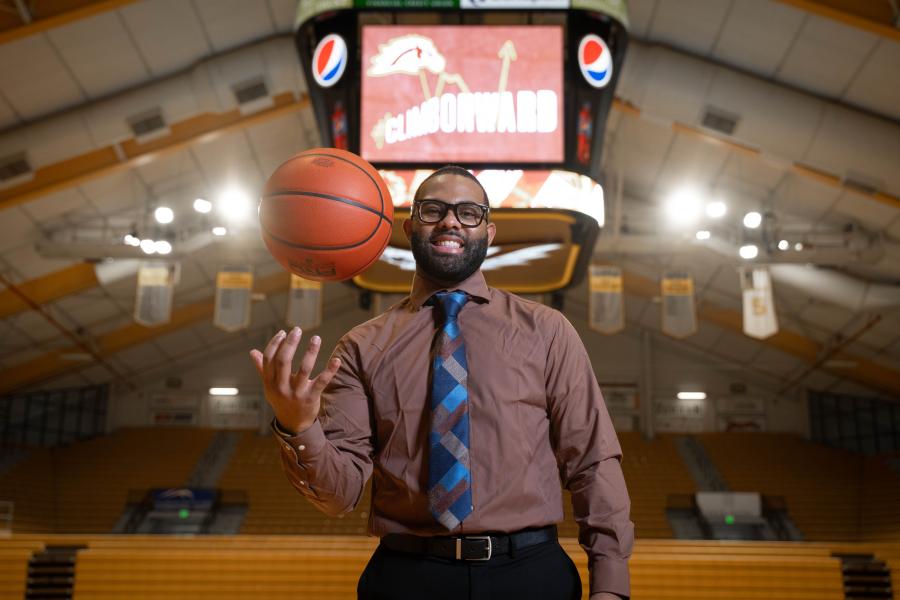The Exercise Science major within the College oof Education and Human Development is a scientifically-based curriculum which includes coursework in the basic sciences, the physiology and biomechanics of exercise, fitness assessment and exercise testing, exercise prescription and training, behavior modification and the clinical aspects of exercise. We offer three exercise science tracks: human performance, clinical/pre-professional and strength and conditioning.
94%
of exercise science graduates are working or continuing their education
100%
of exercise science graduates participated in Experience-Driven Learning
100%
of exercise science graduates had instructors who made them excited about learning
Pursue a B.S. in Exercise Science
Through the Department of Human Performance and Health Education, you'll delve into the intricacies of exercise science through a science-based curriculum featuring coursework, lab experiences, and research opportunities, so you'll be well-prepared for diverse careers in health-related fields.
The program is offered in three tracks:
- Clinical/pre-professional is ideal for students looking to go into healthcare fields such as medicine, physical therapy, physician assistant, occupational therapy, athletic training, chiropractic, and cardiac rehabilitation.
- Human performance is ideal for students who wish to continue their education in exercise science areas such as exercise physiology, biomechanics, and motor control as well as conduct related research.
- Strength and conditioning is ideal for students interested in becoming fitness professionals such as strength and conditioning specialists and personal trainers.
What you’ll learn
You will gain a comprehensive understanding of human movement, health, and performance. This typically includes foundational knowledge in anatomy, physiology, biomechanics, and kinesiology, along with specialized studies in exercise physiology, nutrition, sport psychology, and motor learning. You'll learn to assess physical fitness, design and implement exercise programs for diverse populations (from athletes to individuals with chronic diseases), and understand the principles of health promotion and disease prevention.
I was able to complete a field experience class my first semester. Second semester you can take clinical exercise physiology. You're in a lab learning how to take blood pressure manually; you're reading EKGs. You're doing hands-on tasks right away.
Where you’ll be after graduation
An exercise science degree opens doors to jobs like personal trainer, exercise physiologist, and strength coach, and with more schooling, you can become a physical therapist, athletic trainer, or other healthcare professional.
For 95% of College of Education and Human Development grads, they got that job or got into that graduate school program after graduation. That is because your journey of self-discovery begins the moment you step on campus. At WMU's Career and Student Employment Services, career specialists help you align your passions and abilities with future careers and advanced degrees. They will connect you to practical experiences like internships, job shadowing, research projects and professional mentors.
What others have achieved
Learn about the successful journeys of recent program graduates and the advice they have to share for prospective WMU students.

Meet Ari
Playing a part in WMU's first national hockey championship, Ari worked alongside the team's athletic trainers and supported players. She is now headed to graduate school in pursuit of becoming the first female head trainer in the NHL.

Meet Montana
Turning her passion for K-Pop into an once in a lifetime internship, Montana travelled to South Korea to promote WMU's exercise science program. While there she immersed herself in Korean culture and learned how exercise science is practiced in the east.
Making the most of your learning experience
In the College of Education and Human Development, you'll embark on an incredible journey of experiential learning that goes beyond textbooks. Collaborating closely with faculty members, you'll dive into cutting-edge research, fieldwork and professional pursuits. Pushing the boundaries of the traditional classroom, you'll gain practical skills and make a tangible impact.
As part of the exercise science program, there will be opportunity for you to work inside the exercise physiology lab which features an environmental chamber, metabolic carts, body composition analyzers, cycle ergometers, and an underwater weighing tank, and the biomechanics lab which includes a kinematic and kinetic motion analysis system and force plates.
Outside the classroom, you'll discover diverse internship opportunities in exercise science. These include hospitals, cardiac rehabilitation centers, sports performance and athletic training facilities, corporate wellness programs, community health organizations (like the YMCA), and physical therapy and chiropractic clinics.

Are scholarships available?
Yes! You've put in the hard work—now it's time to see your reward.
Scholarships are an excellent way to help the reduce the costs of higher education. Whether you are entering college for the first time, transferring to WMU from another institution or returning from a gap in your education, be sure to check out our scholarship options. Students earn scholarships for financial need, academic success and promoting multicultural awareness. Most are offered on a competitive basis.



